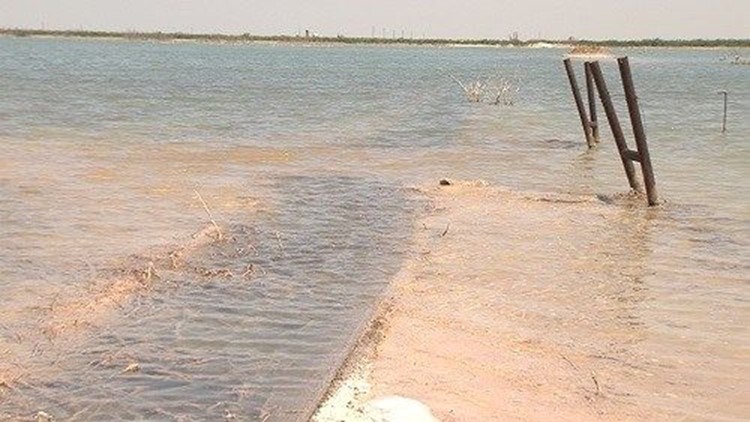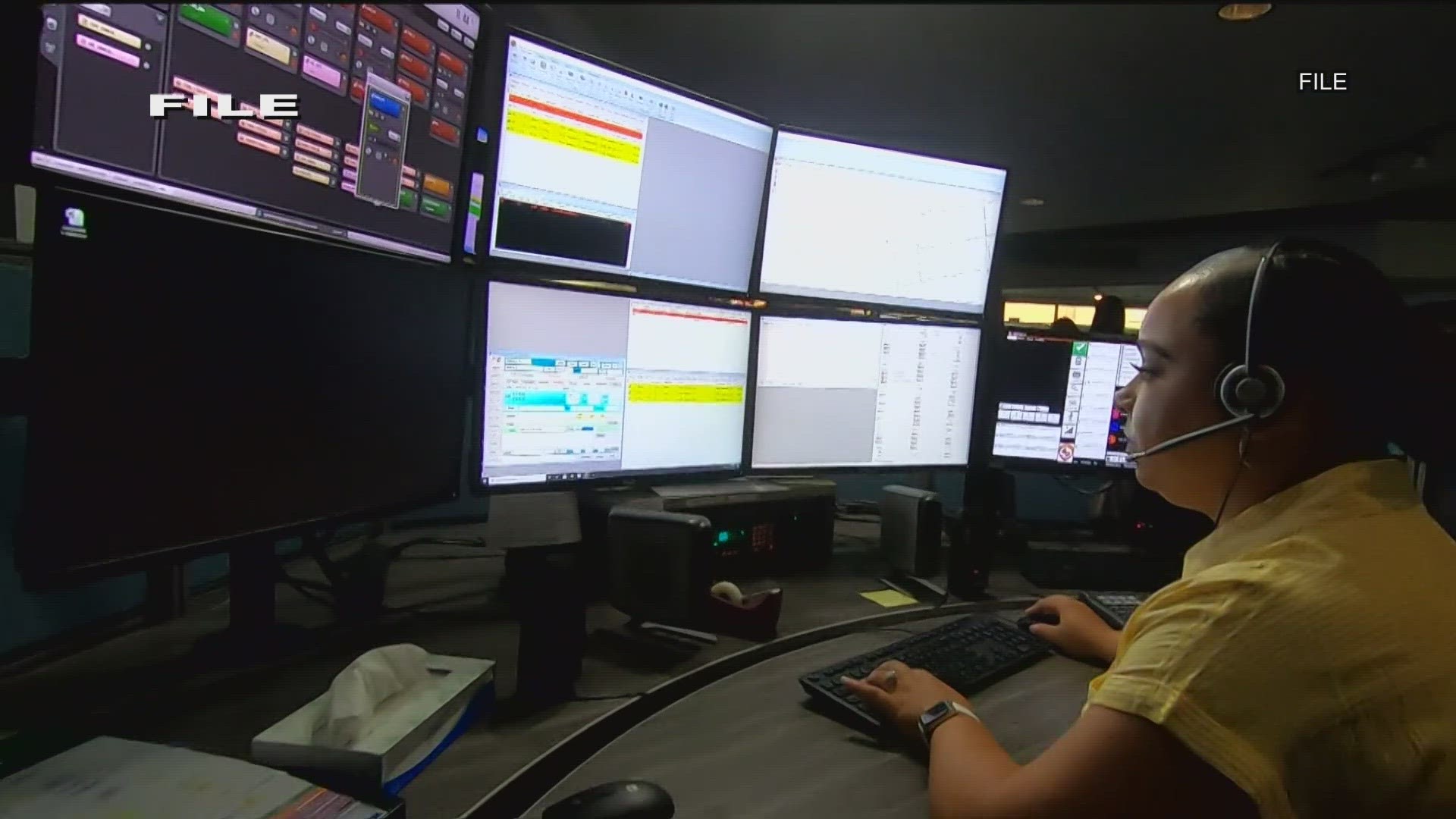MIDLAND-ODESSA, TX (KWES) - Unplugged wells are all across Texas. They're from oil companies that go bankrupt, cease to exist, or don't properly plug their wells.
What residents in Pecos County are calling, Boehmer Lake, is actually not a lake at all. What started as a water well, ended up in almost a 70 year growth of brackish aquifer water sprouting from the San Andres.
"They drilled these wells, and they're flowing," said Ty Edwards with the Middle Pecos Groundwater Conservation District. "The water was good quality water back then, but now it's deteriorated and it's basically salt water. It's as bad as oil field waste water is. The Railroad Commission gave those wells to the land owners most of the time as water wells, then they lost jurisdiction over the wells."
Plugging up a well protects groundwater. And if it isn't properly plugged, it can start to rot.
"Cement breaks down and the corrosive formations like the San Andres or even worse, the Coleman Junction just eat through the casing," said CEO Steve Pruett of Elevation Resources.
To plug up a well, it can cost anywhere from $30,000 to several hundred thousand dollars. But if The Texas Railroad Commission doesn't hold responsibility for wells like Boehmer Lake, and if a landowner can't afford to plug a well, then who holds responsibility?
"The answer is the industry," said Pruett. "Because we, as active operators in Texas, are funding this orphan well fund."
Almost 10,000 wells in Texas need plugging. The Texas Railroad Commission has a list that shows the Permian Basin, has only 18 wells that need plugging but 15 of them are in Andrews County.
"Andrews is a mature producing province," said Pruett. " A lot of old shallow wells."
The Texas Railroad Commission said if operators are not in compliance, they're still responsible for plugging their own wells. If not, the Commission can remove an operator license or simply not allow them to sell oil. In short, pull the plug on operators.
"We want to protect our fresh water, and in general, the oil industry has done a good job," said Pruett. "But let's face it, 7 to 10,000 wells that aren't properly plugged, it's a big risk."
The Texas Railroad Commission said an operator can get an extension to a well plugging by following the Commission's required periodic testing on inactive wells to make sure they're not a threat to groundwater.



